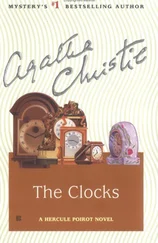
The Borough Press
An imprint of HarperCollins Publishers
1 London Bridge Street
London SE1 9GF
www.harpercollins.co.uk
Published by HarperCollins Publishers 2018
First published by Lee Boudreaux Books 2018
Leni Zumas asserts the moral right to be identified as the author of this work
A catalogue record for this book is available from the British Library
Copyright © Leni Zumas 2018
Cover design by Ellie Game © HarperCollins Publishers Ltd 2019
Cover illustrations by Lauren Harms (Diamond), Shutterstock.com(Lines)
This novel is entirely a work of fiction. The names, characters and incidents portrayed in it are the work of the author’s imagination. Any resemblance to actual persons, living or dead, events or localities is entirely coincidental.
All rights reserved under International and Pan-American Copyright Conventions. By payment of the required fees, you have been granted the non-exclusive, non-transferable right to access and read the text of this e-book on-screen. No part of this text may be reproduced, transmitted, down-loaded, decompiled, reverse engineered, or stored in or introduced into any information storage and retrieval system, in any form or by any means, whether electronic or mechanical, now known or hereinafter invented, without the express written permission of HarperCollins e-books
Source ISBN: 9780008209865
Ebook Edition © May 2019 ISBN: 9780008209858
Version: 2018-10-23
‘Intense, beautifully crafted . . . Her talent is electric. Get ready for a shock’
Guardian
‘Lyrical and beautifully observed . . . highly absorbing’
Naomi Alderman, author of The Power
‘Vividly imagined’
Sunday Times
‘Terrifyingly real’
The Pool
‘Timing is everything – and the release of Red Clocks couldn’t be more apt’
Grazia
‘A fearless novel with a frightening premise that seems plausible. One for fans of Naomi Alderman’s The Power ’
Stylist
‘Necessary and so of the moment . . . this is your go-to book’
Elle
‘In bristling sentences that strike with stunning efficiency, Leni Zumas shows girls and women defying the excruciating restrictions imposed by both law and culture. This is not only timely but necessary fiction –uncannily prescient, unabashedly political, and fiercely humane. We so desperately need books like this’
Emily Fridlund, author of History of Wolves
‘Hilarious, terrifying, and masterful – this pitch-perfect, timely novel reflects the horror and absurdity of our political landscape with a brilliance that ensures the book’s timelessness. It’s as riotously fun as it is chilling. Zumas has produced a poignant, wickedly sharp classic’
Alissa Nutting, author of Tampa
‘Sharp, bold, funny’
Esquire
‘This provocative exploration of female longing, frustration and determination couldn’t be more timely, and yet there’s nothing fleeting about it . . . Zumas has written a novel that’s political without being doctrinaire, that expands the dimensions of our most pressing social debate’
Washington Post
‘Leni Zumas here proves she can do almost anything . . . Red Clocks is funny, mordant, baroque, political, poetic, alarming, and inspiring – not to mention a way forward for fiction now’
Maggie Nelson, author of The Argonauts
‘The dystopian feminist novel for a new generation and a story that will rev you up to be part of the resistance’
Refinery29
‘Strange and lovely and luminous. I loved Red Clocks with my whole heart’
Kelly Link, author of Pretty Monsters
‘Powerful, beautifully written (and, at times, wry and funny) . . . Red Clocks is set to become one of the essential reads for 2018’
Emerald Street
‘Shattering . . . The characters are beautifully realized, inviting empathy and understanding; the richly realized plot is compulsively readable, and the theme, with its echoes of Margaret Atwood, is never didactic but invites thought and discussion. The result is powerful and timely.’
Booklist (starred review)
‘ Red Clocks explores the way female bodies are politicised and controlled, with grim consequences . . . hauntingly plausible’
SFX
for Luca and Nicholas
per sempre
For nothing was simply one thing. The other
Lighthouse was true too.
Virginia Woolf
Contents
Cover
Title Page
Copyright
Praise for Red Clocks
Dedication
Epigraph
The Biographer
The Mender
The Daughter
The Wife
The Biographer
The Mender
The Daughter
The Wife
The Biographer
The Mender
The Daughter
The Wife
The Biographer
The Mender
The Daughter
The Wife
The Biographer
The Daughter
The Mender
The Wife
The Biographer
The Daughter
The Mender
The Wife
The Biographer
The Daughter
The Mender
The Wife
The Daughter
The Biographer
The Wife
The Mender
The Biographer
The Biographer
The Daughter
The Mender
The Wife
The Biographer
The Daughter
The Wife
The Mender
The Daughter
The Biographer
The Wife
The Mender
The Biographer
The Daughter
The Wife
The Mender
The Biographer
The Mender
The Daughter
The Biographer
The Daughter
The Wife
The Biographer
The Mender
The Daughter
The Biographer
Notes
Acknowledgements
About the Author
Also by Leni Zumas
About the Publisher
Born in 1841 on a Faroese sheep farm,
The polar explorer was raised on a farm near
In the North Atlantic Ocean, between Scotland and Iceland, on an island with more sheep than people, a shepherd’s wife gave birth to a child who would grow up to study ice.
Pack ice once posed such a danger to ships that any researcher who knew the personality of this ice could predict its behavior was valuable to the companies and governments that funded polar expeditions.
In 1841, on the Faroe Islands, in a turf-roofed cottage, in a bed that smelled of whale fat, of a mother who had delivered nine children and buried four, the polar explorer Eivør Mínervudottír was born.
In a room for women whose bodies are broken, Eivør Mínervudottír’s biographer waits her turn. She wears sweatpants, is white skinned and freckle cheeked, not young, not old. Before she is called to climb into stirrups and feel her vagina prodded with a wand that makes black pictures, on a screen, of her ovaries and uterus, the biographer sees every wedding ring in the room. Serious rocks, fat bands of glitter. They live on the fingers of women who have leather sofas and solvent husbands but whose cells and tubes and bloods are failing at their animal destiny. This, anyway, is the story the biographer likes. It is a simple, easy story that allows her not to think about what’s happening in the women’s heads, or in the heads of the husbands who sometimes accompany them.
Читать дальше













